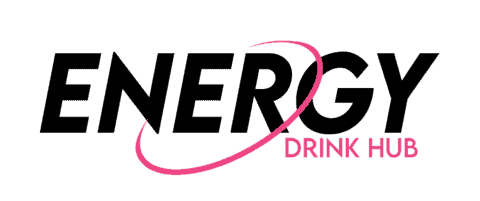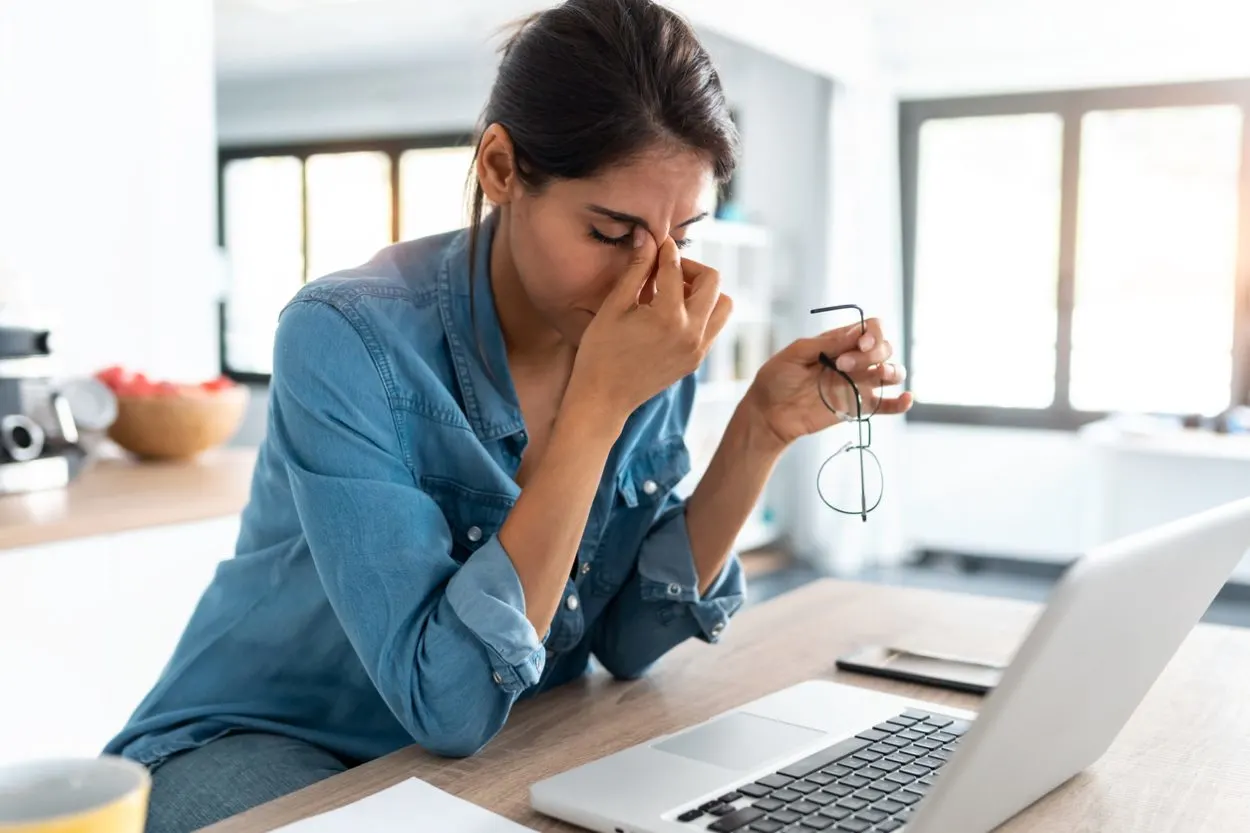
You’re having a panic attack and stressed with the burden of not missing your deadline. It’s almost midnight and your eyes are barely open.
At this moment, nothing feels more inviting than grabbing your favorite energy drink from the fridge, sipping them, and having a boost of energy and productivity, yet why do you instead feel sleepy?
The primary ingredients of any energy drink are caffeine and sugar, which can energize you instantly. Yet this is not always the case. A reported side effect of energy drinks is making consumers feel tired after a caffeinated boost.
If you have the same experience, you may be wondering why something that was made to perk you up can make you feel so down.
Don’t worry, I have all the answers below so keep reading!
Page Contents
What are Energy Drinks?
Energy drinks are marketed to boost your energy levels and mental performance. All energy drinks contain caffeine which is the primary energizer, although the quantity varies.
Red Bull, Monster, Rockstar, and 5-hour energy are some common examples of energy drinks. Although, Red Bull is the first energy drink to have used the formula of taurine, which functions to increase your ability to exercise for long, helping you meet your goals.
Energy drinks contain many other ingredients as well that are listed below:
B vitamins: These are water-soluble ingredients that are flushed out of your body immediately and are tentatively regarded as ‘safe.’ They are necessary for converting added sugar into energy.
Guarana: Originating from the Guarana plant, they offer twice as much caffeine as coffee beans. It stimulates instant energy with added weight loss.
Ginseng: It is a know Asian herb that reduces blood sugar levels and should be avoided if you have diabetes.
Antioxidants: These are molecules ( Vitamin C, E, and A) that help prevent the body from any damage by free radicals.
Why Do People Consume So Many Energy Drinks?
Energy drinks are addictive due to the presence of caffeine.
This main psychoactive ingredient in energy drinks often contains three to five times the dosage found in cola beverages, with “energy shots” having the most significant quantities.
People turn to energy drinks because they can help them have enough energy to finish whatever tasks they need to do. Aside from that, energy drinks also offer the following benefits:
- Improved mental cognition
- Improved physical performance
- Increased metabolism
- Faster reaction time
The thing is, the caffeine boost you experience mainly depends on your tolerance. If you have a high tolerance, you’d need more caffeine for you to feel alert. This can cause people to excessively consume energy drinks.
Furthermore, regularly drinking energy drinks with high caffeine content can also build up your tolerance, so it’s always better to consume them in moderation.
Do Energy Drinks Make You Feel Tired?
The consumption of energy drinks can actually result in fatigue.
Initially, energy drinks were introduced to athletes who wanted a spark of energy to intensify their performance. Later, the demographic expanded to workers, students, and pretty much everyone else.
Energy drinks have promised to produce instant energy upgrades in the body, super-charged performance, and reduce fatigue, yet these promises have often caused an adverse effect to most people.
Who are these people?
Well, energy drinks can negatively affect people with a low caffeine tolerance and a higher susceptibility to sugar spikes causing sugar crashes.
In short, if the amount of either sugar or caffeine in your body has exceeded the maximum tolerance for your body, you’re gonna feel invincible and experience a huge boost but within a few hours, you would be crawling on the floor due to exhaustion.
The FDA recommends no more than 400 mg of caffeine for an average adult and a Harvard study recommends no more than 24 grams of sugar a day. Going overboard would result in crashes down the line.
5 Reasons Why Caffeine Makes You Tired
Caffeine is a primary ingredient in energy drinks; it acts as a neurological stimulant that stimulates energy all across your body, boosting nerve responses and synapses and exponentially increasing thinking speed and reaction time.
Caffeine does indeed work wonders, but here’s the thing: Caffeine is a popular stimulant that gives you a rapid burst of energy for short durations, helping you to complete activities more quickly and think more clearly.
Here’s the twist: it doesn’t always produce the same reaction, and some people might be more susceptible to negative effects.
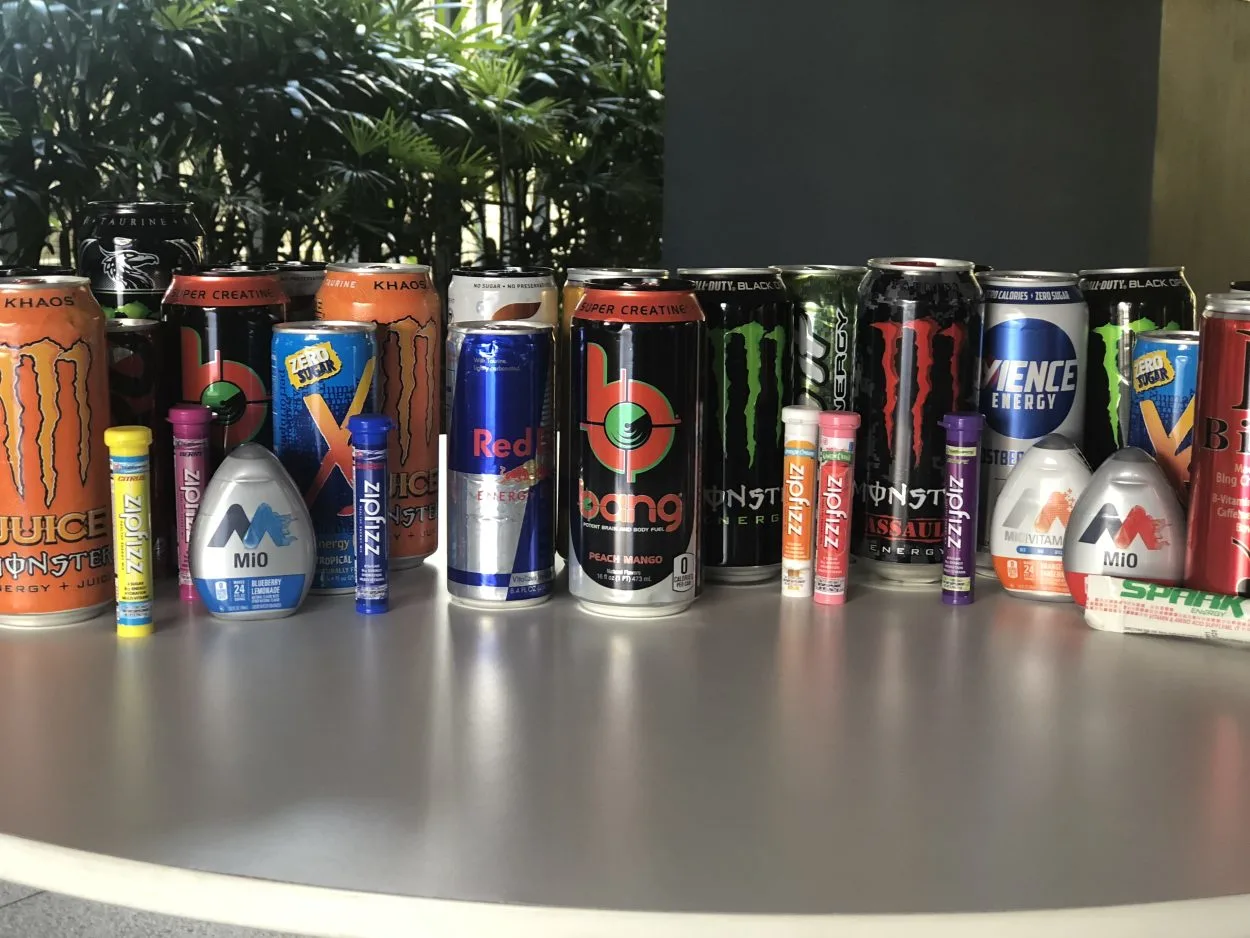
Overdose
Do you need to ask yourself the amount of caffeine you consume in a day? It doesn’t necessarily have to come from energy drinks alone. It could be through the intake of coffee, tea, and supplements as well.
If you’re having more than 3 energy drinks in a day, that means you’re overdosing yourself with caffeine. Energy drinks are liquid and therefore will make you rush to the washroom more, causing dehydration.
Too much of anything is terrible, and caffeine is no exception. It causes your body to work overtime for shorter periods, causing crashes afterward. This will result in causing dizziness and make you feel tired.
Keep in mind that the FDA recommends a 400 mg daily caffeine limit. Going beyond this limit can cause the following side effects:
- Anxiety
- Insomnia
- Increased heart rate
- Headaches
Adenosine
Adenosine is a chemical that naturally exists in our cells. It forms molecules like ATP (Adenosine Triphosphate) and ADP (Adenosine Diphosphate), which are further used to transfer energy within our cells. It causes us to feel sleepy.
When a handsome amount of caffeine hits our brain, it ultimately affects the adenosine receptors causing us to sleep less. Now, how does this explain our problem?.
Here’s what you need to know:
The blockage of sleep caused by caffeine due to its reaction with the adenosine receptors makes you sleep-deprived for a long time. In response to that, the withdrawal effects cause you to feel exhausted and helpless in controlling your sleep.
You’ll find yourself snoring in the day and solving quadratic equations at night.
Here’s a video summing up the aforementioned details.
Mycotoxins
Mycotoxins, also called molds, are present in caffeine. They are produced by certain types of fungi that grow on food.
According to the World Health Organization, “the effects of some food-borne mycotoxins are acute with symptoms of severe illness appearing quickly after consumption of food products contaminated with mycotoxins.”
Mycotoxins have been connected to the development of chronic fatigue syndrome.
Every body reacts differently to caffeine
Everybody has a level of tolerance they develop over time, depending upon their caffeine intake daily.
Although their body sensitivity to it may be naturally occurring, some people might feel like they’ve had 4-5 energy drinks, although they would’ve had only a few sips.
The metabolism of these people tends to get very slow, increasing the period of symptoms.
Caffeine Withdrawal
Caffeine is addictive; it is indeed a drug after all; once you consume it daily, you feel attacked when you don’t get it.
If you suddenly remove caffeine from your diet after consuming it for a long time, you may feel emotions of fatigue as well as depression.
It is similar to that of quitting smoking, and there are actually withdrawal symptoms.
| Age group | Caffeine threshold per day |
| Above 20 | No more than 400 mg a day |
| 12-18 | No more than 100 mg a day |
| Under 12 | No caffeine should be given to children under 12 |
Sugar
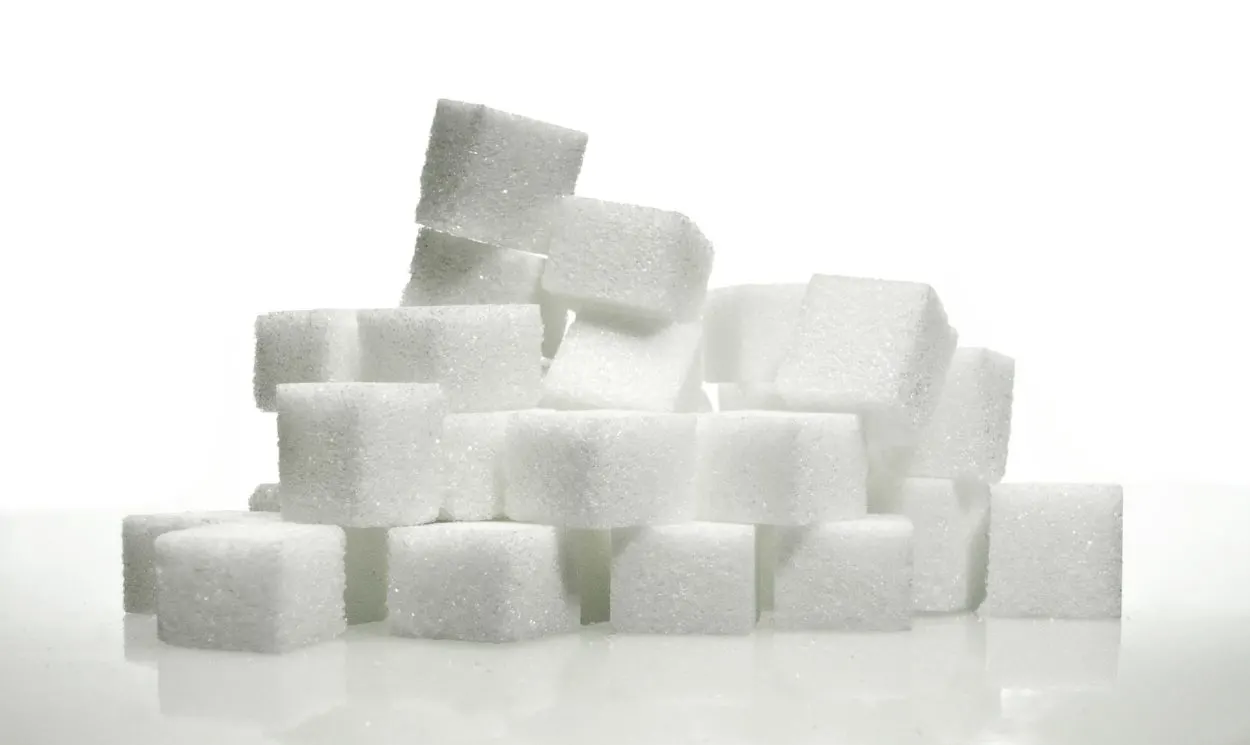
It must be a requisite for you to check the sugar details on the back of the bottle. Sugar comes in different forms like sucrose, glucose, etc.
Now, you might wonder how can something sweet make you tired?
Here’s the thing: any energy drink containing a high level of sugar that tends to be above 20g will give you instant booze of energy yet will make you feel exhausted upon its withdrawal; this is commonly referred to as “caffeine withdrawal.”
This is because excessive sugar in energy drinks activates orexin, a neurotransmitter in the brain that keeps us active and awake, which is reduced when blood sugar levels rise quickly.
After the sugar level wears off, you get a sugar crash and feel extremely tired.
A few more symptoms can be seen along with fatigue:
- Excessive sweating
- Hunger
- Headache
- Anxiety
- Unexplained anger
- Shakiness
How to Choose an Energy Drink That Won’t Make You Feel Tired
Energy drinks boost your performance by giving you the required energy, yet their effects are short-lived.
Sugar and caffeine are a deadly combo, and their overdose might produce adverse side effects, causing you to experience a slump.
To avoid this, you should look for organic ingredients and and low caffeine and sugar content.
Some suggested drinks that would help you not run on fumes throughout the entire day are:
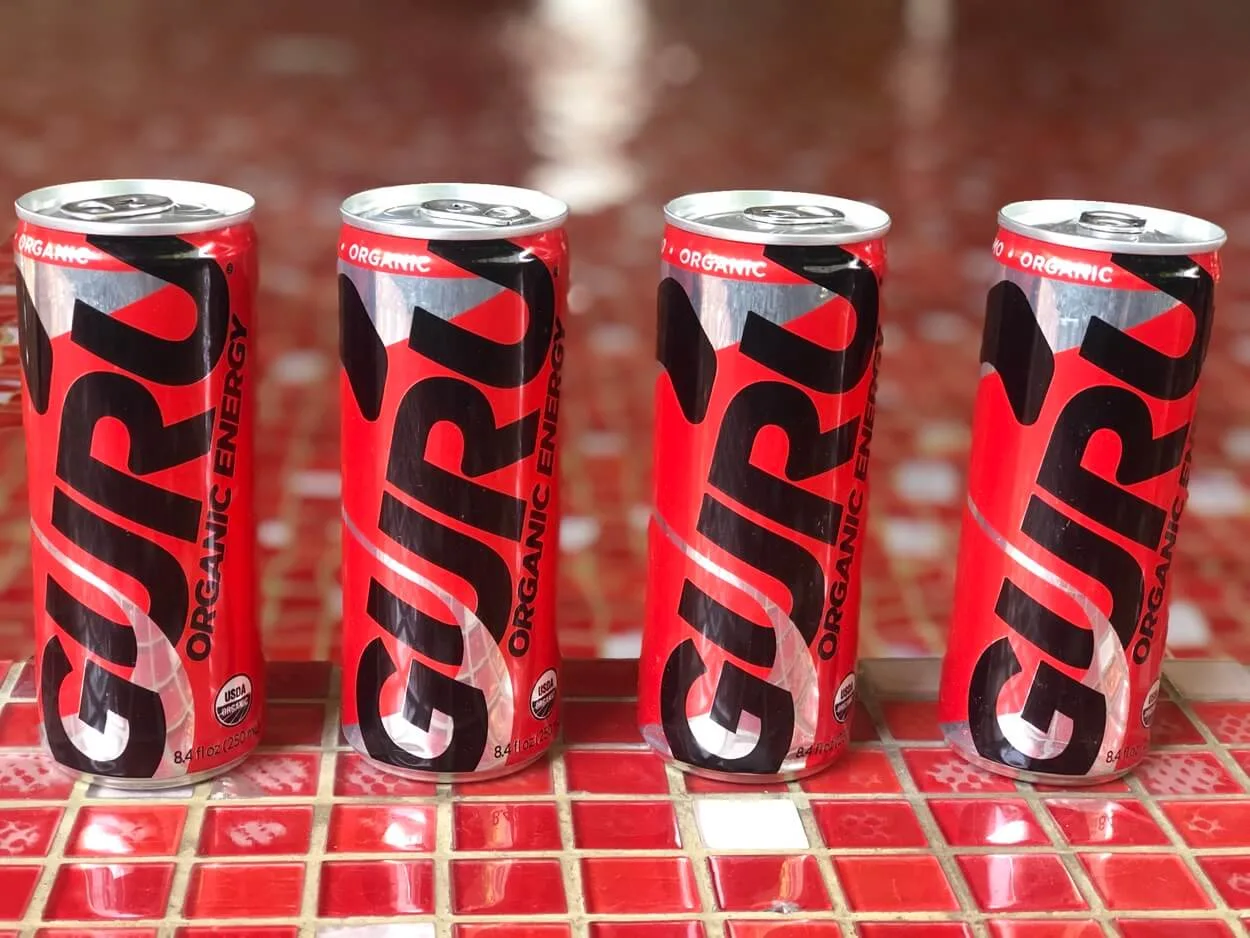
Guru Original is a plant-based energy drink. The caffeine is extracted from green tea, and guarana supports mental alertness and reduces fatigue. It offers only 20 calories per 8 oz can.
Due to it having a natural caffeine extract, you could bet on it giving you that much-needed boost without the side effects you’d normally experience with synthetic caffeine
Avoid energy drinks that include synthetic caffeine, sugar, or other artificial substances. Stick to clean options while shopping for a healthy energy drink.
Energy Drink Recommendations
Other Notable Mentions
Conclusion
Energy drinks might help you stay awake when you have a lot of work to do. However, your vitality will quickly drain, and you will get lethargic and sluggish.
Choose healthier options with additional benefits if you wish to avoid caffeine and sugar. These will help you focus and stay energized for a more extended period of time.
It’ll also reduce the chances of you developing a high caffeine tolerance, which is when the body becomes resistant to caffeine after being introduced perpetually to high dosages, so much so that even more concentrated dosages would have to be used in order to produce the same effect.
So before opening a cold can of an energy drink, be sure to be wary of its caffeine content and origin.
